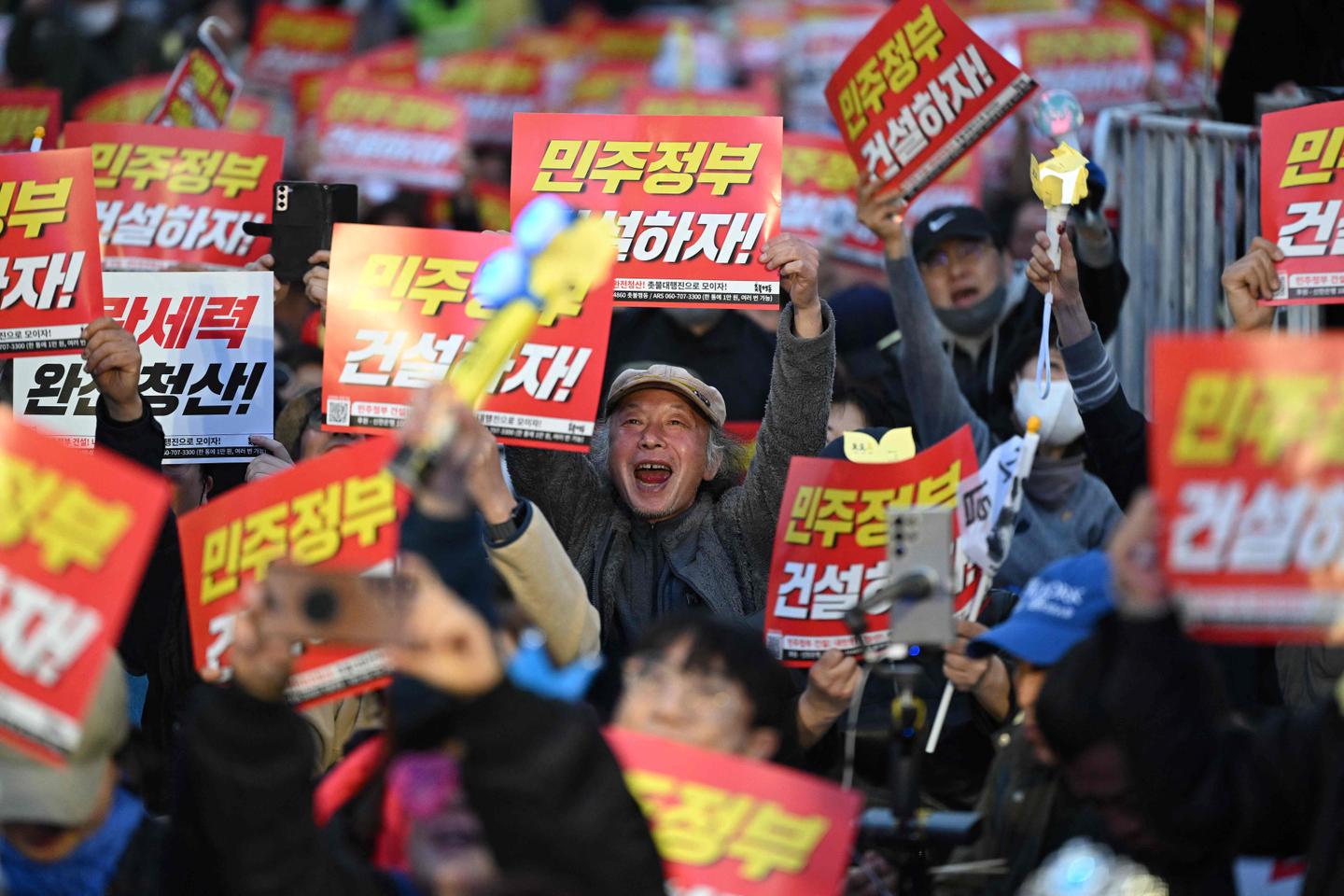


Analysis. The now-former South Korean president Yoon Suk Yeol is facing the death penalty for his failed declaration of martial law on December 3, 2024, which the law regards as an attempted insurrection. It has triggered a deep political crisis in a country with exacerbated ideological divides. Announced on Friday, April 4, by the Constitutional Court, the president's impeachment took time to be validated. On March 8, the president was granted an early release due to a procedural error, which the prosecution chose not to challenge.
Drawing parallels with the controversies surrounding the conviction in France of far-right leader Marine Le Pen, this treatment fueled suspicions of collusion between the judiciary and the political power and revived criticisms of an out-of-control prosecution. Former president Yoon, a former prosecutor general, kept solid friendships within the judicial circles. After his election in 2022, South Korea fell in the V-Dem (Varieties of Democracy) ranking from the University of Gothenburg, Sweden – which assesses democratic progress – partly due to pressures on the judiciary.
In practice, there is no indication of widespread institutional politicization, but political divisions and the media coverage of cases involving elected officials lead to interpretations through a partisan lens. Christophe Duvert, a sociology researcher and law professor at Soongsil University in Seoul and author of Les Voies de la justice en Corée du Sud ("The Paths of Justice in South Korea"), said that Koreans often perceive their judicial system as complex and even biased in favor of the wealthy.
Collusion between prosecution and power
This perception stems from the turbulent history of the judiciary, reminds Christophe Duvert, defining it as based "on a mix of Confucian and 'modern' aspirations whose antagonism adds to its complexity" and whose power has long served the authorities. During Japanese colonization, from 1910 to 1945, the occupier used the justice system to serve its domination. After the liberation, the system remained in place, despite some adjustments influenced by the Americans. Only the setup changed. The police, which was discredited for collaborating with the Japanese occupier, lost its responsibilities to the prosecution.
You have 59.83% of this article left to read. The rest is for subscribers only.
